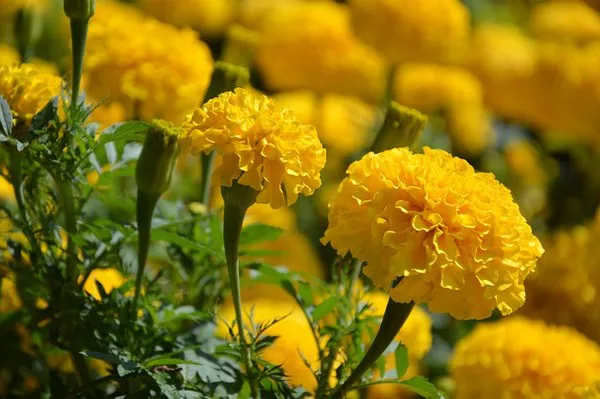Tortoises are fascinating creatures known for their slow and steady pace, unique appearance, and herbivorous diet. While their primary food source is leafy greens and vegetables, they occasionally enjoy indulging in a variety of flowers. However, not all flowers are safe for tortoises to eat. In this comprehensive guide, we will explore which flowers are suitable for your tortoise’s consumption, ensuring their health and well-being.
Understanding the Dietary Needs of Tortoises
Before delving into the specific types of flowers tortoises can safely eat, it is essential to understand their dietary requirements. Tortoises are herbivores, meaning their diet primarily consists of plant matter. Their diet should be rich in fiber, low in protein, and high in calcium to support their shell and bone development. Ideally, a tortoise’s diet should consist of leafy greens, vegetables, and occasional fruit. Flowers, when consumed in moderation, can be a nutritious and enjoyable addition to their diet.
Safe Flowers for Tortoises
Dandelion Flowers (Taraxacum officinale)
Dandelion flowers are a favorite among tortoises. They are not only safe but also highly nutritious. Dandelion flowers are rich in vitamins A and C, calcium, and fiber. These nutrients support your tortoise’s overall health, including their shell and bone development. Be sure to offer dandelion flowers from pesticide-free sources.
Hibiscus Flowers (Hibiscus rosa-sinensis)
Hibiscus flowers are another safe and enticing option for tortoises. These flowers provide a burst of color and flavor to their diet. Hibiscus flowers are rich in vitamin C, which boosts the immune system, and antioxidants that promote overall health. Remove the pollen from the flowers before offering them to your tortoise.
Nasturtium Flowers (Tropaeolum majus)
Nasturtium flowers are both safe and visually appealing to tortoises. These flowers are packed with vitamin C and other essential nutrients that support tortoise health. Nasturtium flowers have a slightly peppery taste, which many tortoises find enticing. Ensure the flowers are free from pesticides and chemicals.
Rose Flowers (Rosa spp.)
Rose flowers are safe for tortoises to eat, but they should be given in moderation due to their high sugar content. Roses are a source of vitamins and antioxidants that can benefit your tortoise’s health. Remove the thorns and any pesticides from the flowers before offering them as a treat.
Marigold Flowers (Tagetes spp.)
Marigold flowers are not only safe but also visually appealing to tortoises. These flowers contain compounds that have anti-inflammatory properties and can benefit your tortoise’s overall health. Ensure the marigold flowers are free from pesticides or chemicals.
Echinacea Flowers (Echinacea spp.)
Echinacea flowers are known for their immune-boosting properties. They contain beneficial compounds that can help support your tortoise’s immune system. These flowers are safe for tortoises to eat but should be given as an occasional treat.
Lavender Flowers (Lavandula spp.)
Lavender flowers have a delightful aroma and can be a safe treat for tortoises when offered in moderation. They contain compounds with mild calming effects, which may help reduce stress in your tortoise. Ensure the lavender flowers are pesticide-free.
Sunflower Petals (Helianthus annuus)
Sunflower petals are a safe and attractive choice for tortoises. They are rich in vitamins and can provide a burst of color to your tortoise’s diet. Remove the seeds from the sunflower head, as the seeds are too high in fat for tortoises.
Flowers to Avoid
While many flowers are safe for tortoises to eat, there are some that should be avoided at all costs due to their toxicity. Some of these toxic flowers include:
- Azaleas (Rhododendron spp.)
- Oleander (Nerium oleander)
- Foxglove (Digitalis spp.)
- Castor Bean (Ricinus communis)
- Lily of the Valley (Convallaria majalis)
- Rhubarb (Rheum spp.)
These flowers contain compounds that can be harmful, or even lethal, to tortoises if ingested. Always ensure that any flowers you offer your tortoise are from safe and non-toxic sources.
Feeding Guidelines
When incorporating flowers into your tortoise’s diet, it is essential to do so in moderation. Flowers should be considered a treat and not a primary food source. Follow these guidelines to ensure the safety and well-being of your tortoise:
- Offer flowers as an occasional treat, no more than once or twice a week.
- Introduce flowers gradually to your tortoise’s diet to monitor their response.
- Always wash flowers thoroughly to remove any pesticides, dirt, or contaminants.
- Remove any stamens, pistils, or other inedible parts of the flowers.
- Observe your tortoise for any adverse reactions after introducing a new flower.
- Avoid feeding flowers from florists or nurseries, as they may have been treated with chemicals.
Conclusion
Incorporating flowers into your tortoise’s diet can add variety and nutrition to their meals, making their diet more interesting and enjoyable. However, it is crucial to be selective and informed about which flowers are safe and suitable for your tortoise. Always prioritize their health and well-being by offering flowers as an occasional treat, ensuring they are free from pesticides, and following the recommended guidelines. With the right approach, you can provide your tortoise with a well-rounded and enjoyable diet that supports their overall health and happiness.


